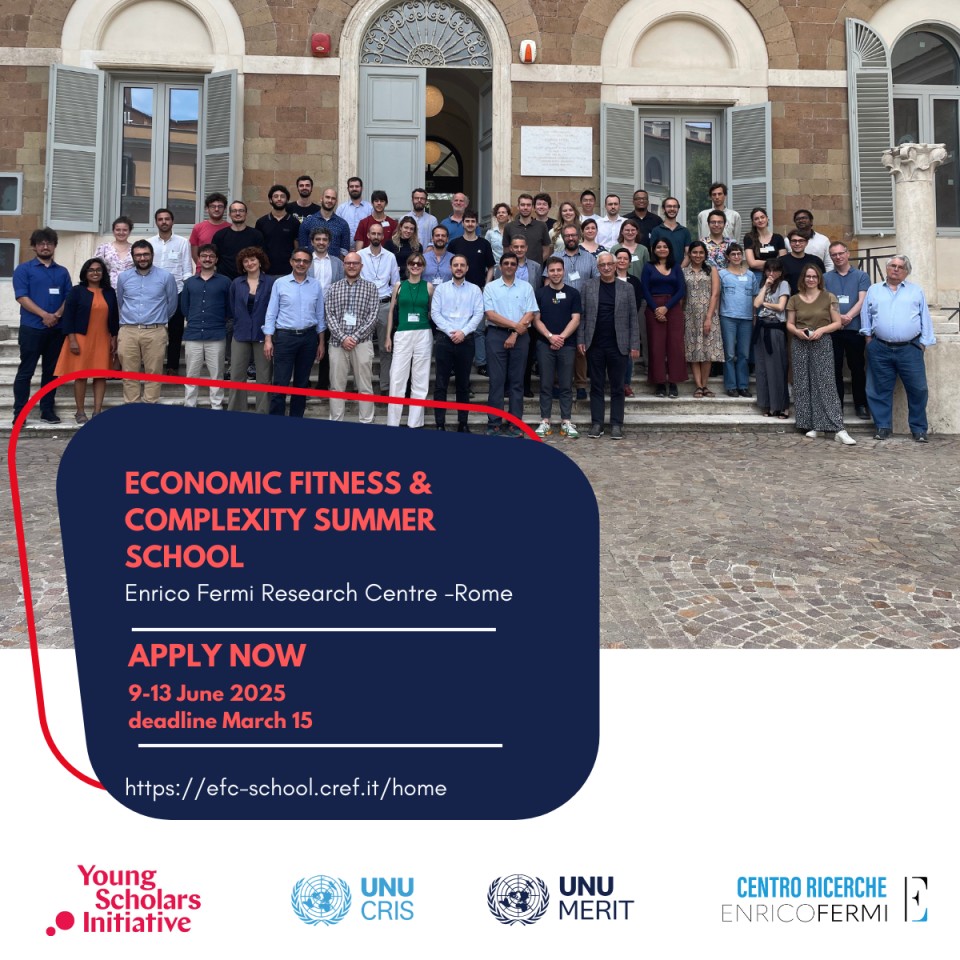The most pressing challenges in science and society are frequently too complex for any single discipline to tackle alone, necessitating a problem-solving approach that transcends traditional disciplinary boundaries. Recently, the science of complex systems has gained considerable recognition, including the award of the Nobel Prize in 2021 to Giorgio Parisi for his research on this topic, but its potential in illuminating socio-economic systems has yet to be fully explored.
Economic systems are particularly complex. Composed of numerous interconnected elements that interact in nonlinear ways – an epitome of what is known as a “disordered system” it is hard to predict and forecast how these systems will behave over time. Economic fitness and complexity (EFC) tools and metrics are increasingly facilitating a new, data-driven approach that relies on big data and machine learning techniques to find empirical patterns that improve our ability to see what’s on economic horizons.
EFC tools represent economic systems not by aggregating its parts, but by analysing how its parts interact with each other. By viewing economies as evolutionary processes that weave together global ecosystems – of industries, technologies and science, to name a few – EFC explicitly builds on the heterogeneity of individual actors, activities and interactions to extract relevant and statistically robust parameters that characterize the system.
This multidisciplinary approach offers new opportunities to describe technological ecosystems, analyse their structures, understand their dynamics and introduce new metrics. EFC has made it possible to analyse and forecast economic growth at a higher level of accuracy than traditional methods and has offered scholars and policymakers a tool to predict country and regional trajectories of economic diversification. Its applications offer insights to address many of the pressing social challenges of our times, such assessing countries’ capabilities to sustain the green transition, or understanding the link between productive structures and inequalities.
Several international organisations have adopted these methods. The World Bank introduced Economic Fitness (EF) among the World Development Indicators and the Joint Research Center of the European Commission recently adopted EFC for the analysis of the competitiveness of European Union countries and regions, and for the optimal development and planning of innovation systems. These innovative and trans-disciplinary elements of EFC methods have enabled a deeper understanding of the complexities of economic systems and have provided valuable insights for shaping economic policy and promoting sustainable economic growth.
Interested in exploring the potential of economic fitness and complexity?
Join us this July for our Summer School, organised by UNU-MERIT and the Enrico Fermi Research Centre.

In the first part of the programme, participants will be offered training on the main tools of the fitness toolbox, such as the economic fitness and complexity algorithm, measures of relatedness, and network inference using random graphs and multilayer networks. In the second part, the school will feature speakers presenting cutting-edge, frontier contributions from the fitness and complexity literature, covering topics such as economic development, technological and scientific production, sustainability, labour markets, and industrial policy.
We will ask and discuss:
- To what extent can economic complexity improve political decision-making?
- Can EFC provide indicators that can be used for the industrial planning of countries and regions?
- What are the core elements of the innovation process and what are the early warnings of different activities of the innovation system?
- How can EFC help for policy/project evaluations?
- Can regions identify new opportunities for economic growth and diversification?
- Can EFC methods help in mapping new green opportunities?
Learn more about the Summer School here. The deadline to apply is Sunday 15 March 2025.



